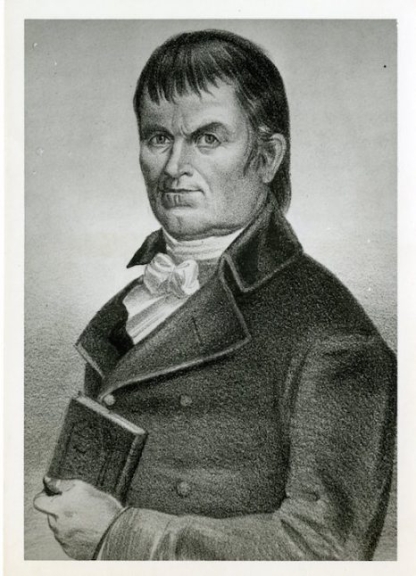Gamaliel Painter

Back to Middlebury History Online
Son of Shubael and Elizabeth (Dunbar) Painter, Gamaliel Painter (1742-1819) was born in New Haven, Connecticut, on May 22, 1742. One the earliest settlers of Addison County, Painter served as a Member of the Constitutional Convention, in Windsor, Vermont, in 1777. He presided as Judge of the Addison County Court, in 1785, served as Sheriff of Addison County, and 1786, and again as Judge from 1787-1794. Painter represented Middlebury in the State Legislature, 1788-1792, and was the first Delegate who ever represented the town in any public meeting. On May 2, 1791, he deeded a lot to the County “For the only expressed purpose and use of a Common, never to be divided, or put to any other use.” On May 22, 1794, he deeded a lot to the county “For the courthouse and hail thereon, and as a common, never to be put to any other use.” He superintended the erection of the Congregational Church in Middlebury and of Painter Hall, the first of three buildings that would comprise the infrastructure of Middlebury College throughout the 19th Century. At his death in 1819, he bequeathed nearly all his estate to the College. Painter’s cane, which was part of the bequest, has become the symbol of the Middlebury College tradition. Painter married three times: first to Abigail Chipman, with whom he had two sons, then to Victoria Ball, with whom he had a daughter, Abby Victoria, and finally to Mrs. Ursula Bull. Gamaliel Painter died in Middlebury in May 1819.

